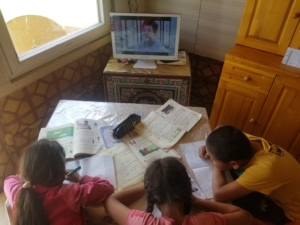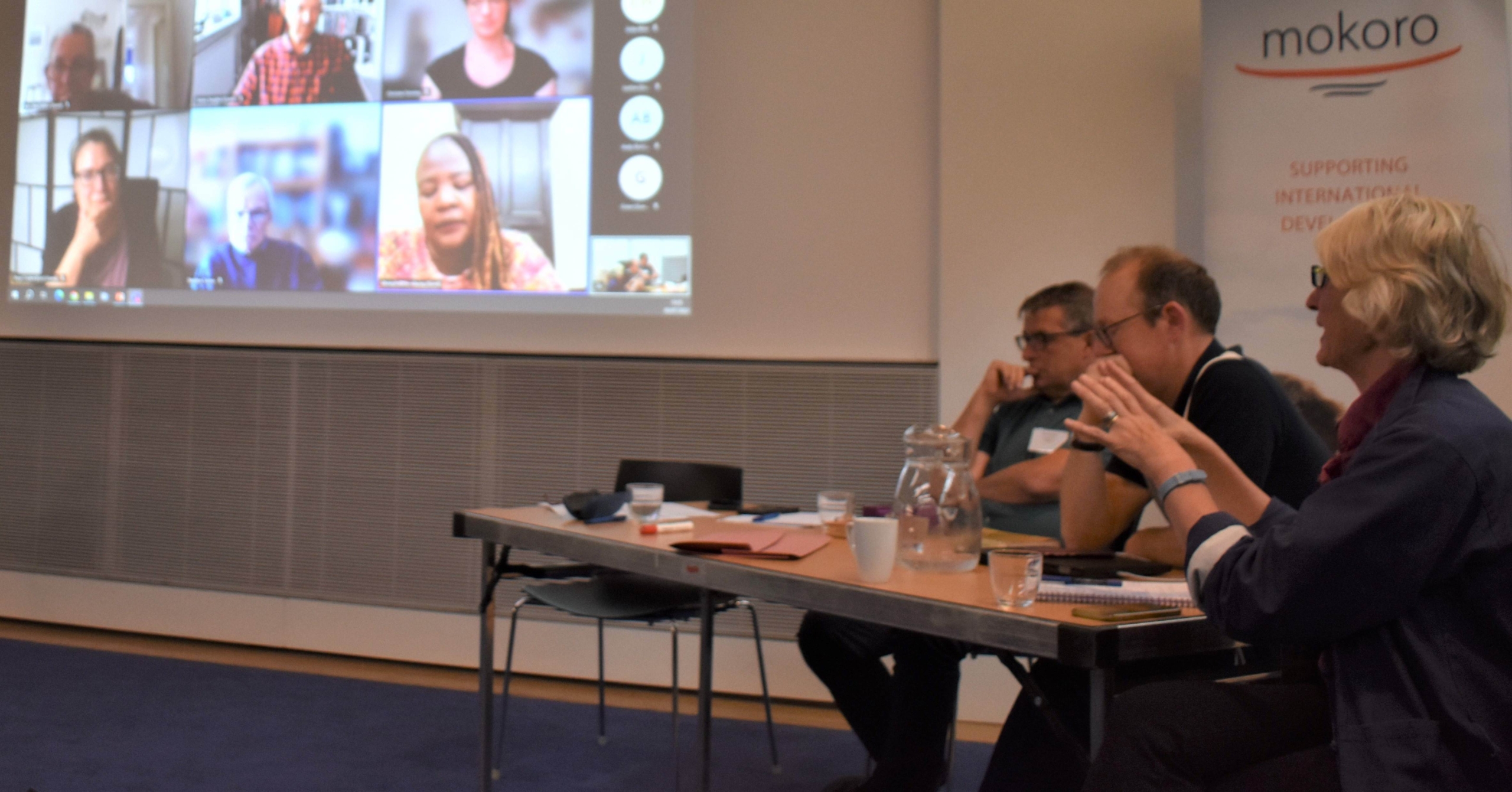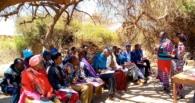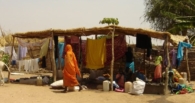How Covid-19 is bringing Mongolia’s herding families back together
WOLTS Team Perspectives No.5
B. Munkhtuvshin
1 September 2020
/
- 0 Comments
In central Mongolia, the summer is warm and soft rain falls on the steppes. For herders like Baasandorj, it is a busy time of year, filled with combing sheep’s wool, milking cows and making dairy products for the winter.
I first met Baasandorj in February 2018 while carrying out a baseline survey for a long-term action research project on women’s land tenure security, called WOLTS. He was married with four children but was spending the winter alone with his animals, while his wife, Javzandolgor, lived with the children in the soum (district) centre so they could go to school. I remember him that cold winter’s day trying to heat up his frozen dinner after coming home from herding alone. I felt sad about the hardship of his life and later wrote my first blog about split families.
This year, due to the COVID-19 pandemic, schools across Mongolia were closed and Baasandorj was able to spend much of the year in the same place as his wife and children. I visited them a few weeks ago.
The children are now aged 13, 11, 7 and 6. They are bright and well behaved and we happily shared a meal while they told me how much they had enjoyed spending the past winter together as a family. Both parents had been able to give their children attention while studying at home and Baasandorj was delighted to have hot and tasty meals prepared by his wife. She was also very happy to spend the winter close to her husband. In the soum centre, Javzandolgor told me, she used to worry all the time about him herding alone without proper meals.
Their contentment made my heart melt. The two older children told me how much fun they were having learning traditional herding skills, even though they also had to help the younger ones with their schoolwork. Not one family member complained about the freezing cold or the hardship of herding.

© B. Munkhtuvshin, WOLTS Team
It is clear to me that family life in Mongolia’s traditional herding communities is under enormous stress. Competition from other land users, and from mining, population growth and climate change, are all making life much tougher. These pressures are compounded for many couples by them having to spend much of the year apart so that their children can go to school.
The families do not have much choice in the matter. Mongolia’s new education policy requires all children to start school at the age of 6, with one year of kindergarten before that. For most herder households, the policy means wives and children have to stay in the soum centre from early September through to June the following year.
Covid-19 is a terrible disease, but school closures have given this family – and many others – a chance to go back to a more traditional way of life. Herding is dying as a lifestyle in Mongolia, as my colleague has recently written about, but Baasandorj’s children were clearly enjoying themselves, while still doing their schoolwork from home. Perhaps this shows that a young generation of nomads can still be interested in living like their parents and grandparents did, but they also need better – and more flexible – education.
If we don’t help these families to stay together after the pandemic is over, most herder kids will spend 12 years isolated from their nomadic culture – and their fathers – in soum centre schools. It is not surprising that so many then go on to the cities for tertiary level study and tend to stay there after they graduate. If this continues, it is hard to see how herding can survive.
However remote education is not easy. Baasandorj’s children said it was sometimes difficult to follow classes on TV or online. The eldest boy was busy helping his parents look after the animals and did not always complete his homework on time. But the two younger ones proudly showed me how they have already learned reading and writing with their mother’s help.
September is decision time. As I write, with the pandemic under control in Mongolia for now, Javzandolgor is taking the children back to the soum centre. Even though it has been nice to be together, Baasandorj says he has to send them back to school get their education.
Under previous education laws, herder children in Mongolia started school at the age of 8. I left the family wondering if Mongolia could allow them to stay at home in their winter camps, using TV and online classes, with teachers visiting once a month to check how they are doing? Could more flexible education services be set up to give herder parents support while keeping the family together? What other options could be used to solve this issue? And what lessons might there be from other countries with experience of remote schooling?
My work with PCC and the WOLTS project has involved action-oriented research into many aspects of gender equity, land rights, livelihoods, family sustainability and health. I hope that our work will help to generate better solutions for Mongolia’s herders, and protect this unique way of life.
Munkhtuvshin works with the Mongolian NGO, People Centered Conservation (PCC). She is a key field team member for the global WOLTS project, which is carried out in Mongolia by PCC with MokoroLtd, a UK-based not-for-profit organisation. For more information on WOLTS and access to research reports and publications, please visit http://mokoro.co.uk/project/womens-land-tenure-security-project-wolts/.
WOLTS Team Perspectives is a blog series in which team members share their views about the impacts of the WOLTS project’s action-research. This blog – WOLTS Team Perspectives No.5 – has been simultaneously published as a Mokoro newsletter article with permission of the author.



